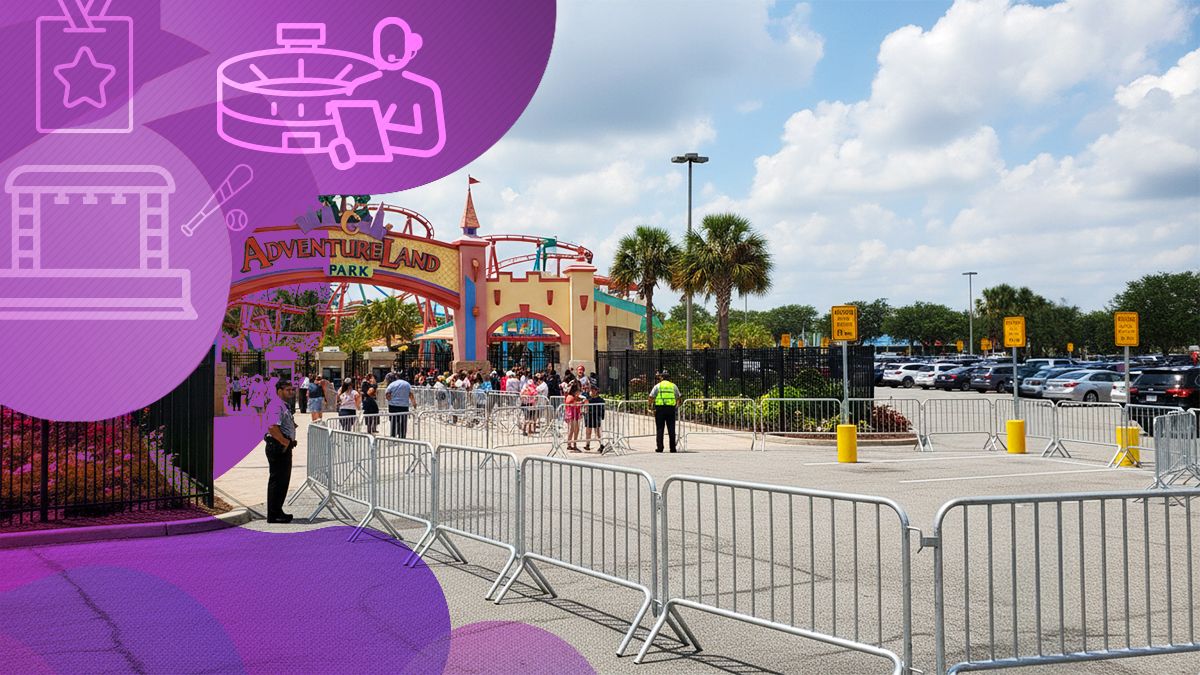Adding Temporary Fences to Your Rental Business Portfolio
Temporary fences meet safety requirements and local regulations, making them essential for most construction sites. As a result, they are constantly in demand.

Business owners need to do everything possible to turn a profit in these challenging economic times, and adding temporary fence rental assets has proved to be a lucrative proposition.
Rental companies sometimes offer items that cover wide-reaching needs, while others specialize in niche services. Regardless of whether you cater to wedding events or construction sites, everyone needs temporary fence rental support.
If you do not have an inventory that includes secure and attractive fence rental assets, here's why they can be a profit-driving staple.
Federal Agencies Call for Construction Fencing
Jobsites are usually required to erect barriers to prevent children and passersby from wandering into a hazardous environment.
Contractors typically factor in the cost of a fence rental, much like other niche construction equipment. Decision-makers simply run the numbers on the cost of purchasing items, maintenance, upkeep, and storage.
They compare that expense to short-term temporary rental fees. They typically prefer scalable rentals, positioning them as a pass-through expense when hashing out contracts.
It’s also important to keep in mind that a temporary fence rental is not necessarily an optional expense when razing, excavating, or building a structure. The Occupational Safety and Health Administration (OSHA) routinely tasks contractors with establishing a jobsite perimeter using a temporary fence or another secure barrier.
According to OSHA’s Safety and Health Regulations for Construction, contractors are required to 'Erect and maintain control lines, warning lines, railings or similar barriers to mark the boundaries of the hazard areas … the hazard areas must be clearly marked by a combination of warning signs (such as “Danger--Swing/Crush Zone”) and high visibility markings …'.
Deploying temporary fencing is an ideal way to satisfy OSHA regulations because it can be integrated with interchangeable signage panels. It’s also important to note that electricians need to follow OSHA fence guidelines to prevent unsuspecting people from suffering an injury.
If you already have an inventory of construction equipment, contractors will be inclined to add their fence rental orders when starting a project.


Local Ordinances Task Contractors with Setting Up Temporary Fencing
Federal workplace safety agencies establish general guidelines pertaining to temporary safety fencing. But it’s the boots-on-the-ground building officials who enforce local ordinances.
Some municipalities adopt construction site safety regulations mirroring OSHA. Others take the importance of temporary fences a step further. For example, failing to erect temporary fencing in Phoenix, AZ, is currently a crime.
'Any person who shall make any excavation or dig any hole, drain or ditch in any highway or thoroughfare in the City without providing a sufficient light at night and a temporary fence or suitable obstruction around or in front of such excavation during the day shall be guilty of a misdemeanor,' according to the Phoenix Municipal codes.
Why Include Temporary Fence Rental for Events?
Companies specializing in event planning rentals may be missing out on revenue they could generate from including temporary fencing. Event equipment rental items such as tables, chairs, place settings, tents, sound systems, and many others are often placed inside an established perimeter.
If you're in the industry, pause and consider just about any outdoor concert or festival. Event planners typically use temporary fencing to funnel people to ticket booths, turnstiles, and ensure foot traffic flows efficiently.
These are other reasons why event planners need temporary fences:
- Improve Security: Deploying a fence rental creates a boundary that requires attendees to enter through designated openings. At those locations, event planners can assign security personnel to check bags, wand people or set up metal detectors to maintain a safe environment.
- Reduce Liability: It’s not unusual for event planners to take out liability insurance to cover a specific time period. Special event insurance covers accidents and injuries that may occur during setup, the festivities, and breakdown. Companies that offer this niche insurance usually expect the event to take place in a defined area. If someone cannot control who comes and goes, either the cost of coverage will increase or a carrier will deny the application.
- Permit Approval: Some private venues may have liability insurance that event planners pay for as part of the overall cost. Municipalities, on the other hand, typically expect applicants to show proof of coverage. Officials who oversee local parks and recreation areas expect users to have a plan that includes perimeter security, which calls for temporary fencing.
Professional planners and those organizing one-off events prefer to work with a rental company that can fulfill all their needs. The notion of running to multiple rental companies for select items is akin to an Easter Egg hunt. Rental operations with deep inventories emerge as go-to resources in an otherwise competitive industry.
Fence Rental Return on Investment
The return on investment for fence rental inventories can add significant revenue to a company’s bottom line and overall value. Temporary fences, and the accessories needed to erect them, take up far less space than construction equipment.
The compact fence stands, footings, panels, and other items may even require less space than standard event tables and chairs. Efficient storage space aside, temporary fence rental equipment can pay for itself quickly and start adding profit.


Consider how many contractors, wedding planners, festival professionals, and others would benefit from your added inventory. Calculate the regional rate charged for this rental service against your initial investment. Estimate how frequently existing and new customers would rent the fencing and accessories. That equation will give you an idea of how quickly the products will turn a profit.
If your rental business would benefit from generating more revenue and improving customer satisfaction, SONCO offers fast shipping to anywhere in the United States. Get a down payment from your customers first, then make a purchase on the SONCO website and have everything shipped to your location or directly to your customer's location. You just need to be there to sign for it and install it properly.
Ready to offer fence rentals as a service? Check out our step-by-step guide on how to set up a chain-link fence! It’s a simple process that adds great value to your customers.
Attract the right customers to your rental business! We’ve created a guide with detailed strategies for generating leads and nurturing potential clients. Click the image below to download your free guide!


Trend now

Theme Park Safety: Avoiding Fines and Accidents with Crowd Control
Learn how crowd control products help keep theme parks safe, avoid accidents, and improve operations. Explore SONCO’s solutions for better crowd management.

Anti Scale Fence for Temporary High-Security Needs
Anti scale fence designed for temporary high-security perimeters, crowd control, protests, and emergency response where standard fencing falls short.

Why Bike Rack Barricades Are the Go-To Choice for Crowd Control
Explore why bike rack barricades are the go-to for crowd control. Learn how these versatile, durable barriers keep events, construction sites, and more organized.





